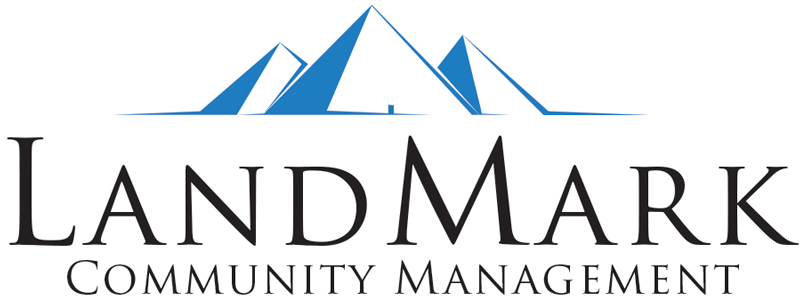Every homeowners association relies on a board of directors to run the community. These directors must fulfill certain HOA board duties as provided by the association’s governing documents.
What Are the HOA Board Duties?
At the helm of every HOA community is a board of directors managing the association. Board members are nominated and elected by the owners. They are volunteers, which means they typically do not receive compensation.
Specific HOA board responsibilities can differ from one community to another. In general, though, HOA board members are in charge of accounting and financial management, rule enforcement, and common area maintenance.
1. Accounting and Financial Management
Similar to a corporation, a homeowners association normally handles money. Homeowners pay regular dues, which the association uses to fund various expenses. When money is involved, accounting and financial management naturally follow.
The HOA board is responsible for preparing the annual budget, setting and collecting dues, and disbursing funds. The board is also responsible for keeping accurate records, preparing financial statements, and preparing tax returns.
Associations will also face major repair and replacement costs now and then. It is the board’s job to maintain a reserve fund to pay for those costs. The right level of funding may be determined by conducting a reserve study.
In some states, such as California, it is even mandatory for an HOA to maintain reserves and perform a financial review. However, no statutory requirement exists in Texas. That said, an association’s governing documents may contain such a requirement.
2. Rule Enforcement

One of the most important HOA board member duties is rule enforcement. Rules exist to maintain a community’s standard of living and property values. While exact rules can vary depending on the association, some of the most common rules include parking, noise, pet, and architectural rules.
Homeowners must follow the rules or face certain consequences. These consequences can range from fines and a temporary suspension of member privileges to liens and foreclosures. The HOA board is responsible for enforcing these rules to ensure everyone follows them.
Enforcement, of course, must be consistent and fair. Board members must never carry out any decision with bias or favoritism. They must not enforce rules selectively or arbitrarily. Rules are not a way for board members to settle a score or satisfy their personal vendetta. In fact, board members have a fiduciary duty to enforce the rules uniformly or face potential liability.
3. Common Area Maintenance
One of the primary objectives of an HOA is to maintain common areas or elements. Thus, this responsibility also falls on the shoulders of the HOA board.
Board members must hire vendors for regular cleaning and maintenance work on all common areas. The board also usually sets aside a budget for this very purpose. Other than that, the board should plan for the long-term maintenance and replacement of assets, which is where reserve funds come in again.
Understanding HOA Board Roles
While the HOA board acts as a collective group, it consists of individual officers. Depending on the association, each officer usually fulfills a specific role. The usual positions are HOA president, vice president, secretary, and treasurer.
Here are the individual HOA board member responsibilities.
HOA President
The role of the president is to act as the main facilitator. A board president presides over meetings, leads discussions, facilitates voting, and ensures everything goes smoothly. The president also signs contracts and checks, executes contracts on behalf of the association, and ensures all decisions are in the association’s best interest.
Because of the nature of the role, a good president should have excellent communication, leadership, and delegation skills. A good president must also know how to work well with others and remain professional in the face of adversity.
Vice President
The role of the vice president is to aid the president in everything they do. An association’s VP takes over the president’s role should the latter cannot do so. For instance, the vice president steps in if the president is out of town or ill and otherwise can’t fulfill their duties. For this reason, the VP must have all the same capabilities as the president.
When the president is around, the VP can assume other responsibilities or share the president’s burden. It really depends on the association. More often than not, the VP is in charge of managing committees.
Secretary
The HOA secretary is in charge of all things document-related. They prepare and deliver meeting notices, keep accurate association records, and take down meeting minutes. The secretary works closely with the president to create agendas for board meetings.
They are also responsible for maintaining all the association documents, including governing documents, vendor contracts, financial reports, tax returns, etc. The secretary usually handles the job if an owner requests to copy records.
Communication is a key aspect of the secretary’s role. As such, they should have excellent communication skills. The secretary must be a good communicator, an efficient worker, and attentive to detail.
Treasurer

Finally, the treasurer of the association manages the funds. They are in charge of bookkeeping and accounting and preparing financial statements with the president’s help. They maintain the association’s bank accounts, oversee the reserve funds, and manage the HOA’s investments (if any). The treasurer also acts as one of the signatories for checks and withdrawals.
Ideally, the board treasurer should have an accounting and financial management background. It is also good to have experience with tax preparation and investments. Beyond that, integrity and honesty are two qualities that a treasurer should possess. This aspect of HOA management usually comes as a challenge, which is why many associations hire a professional.
For All Members of the HOA
Whether you are a homeowner or a board member, it is important to understand HOA board duties. Board members should familiarize themselves with their roles and responsibilities to better serve their community. On the other hand, homeowners should know these responsibilities to keep board members in check.
Landmark Community Management specializes in HOA management services. If your board needs help managing your association, call us today or contact us online!


